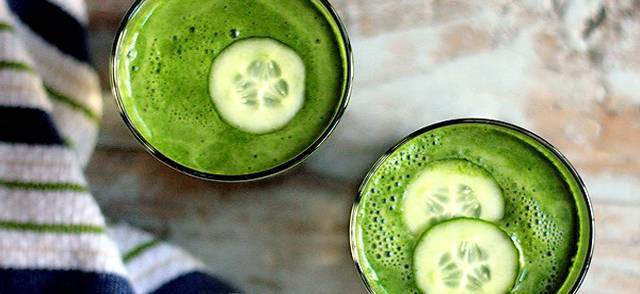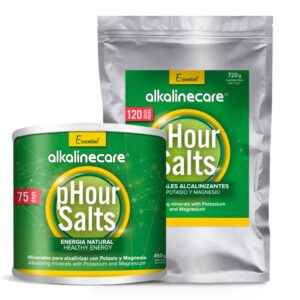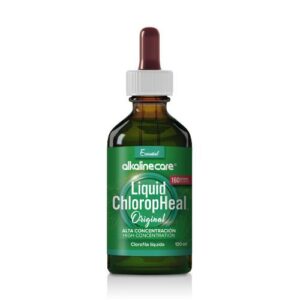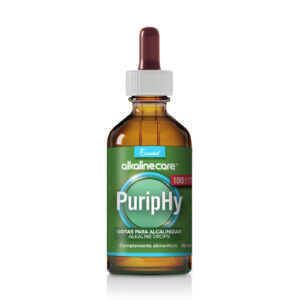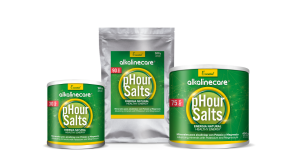Green juices can vary greatly, not just in flavor but also in their properties, depending on their ingredients. Enjoy these alkaline green juice recipes.
Difference Between Smoothie and Juice
Before diving into the recipes, it’s essential to clarify a common source of confusion: the difference between smoothies and juices. Smoothies retain all the fiber, promoting bowel movement and providing a greater feeling of fullness. On the other hand, juices contain no fiber, meaning their nutrients enter the bloodstream within minutes, oxygenating the blood and providing a clean and efficient energy boost.
We recomend taking preferably a green juice as its color is associated with detoxification, regeneration, oxygenation and alkalinity. However, other vegetables and fruits also provide essential nutrients. So It is advisable to include fruits or vegetables with different colors when making juices, always following an 80/20 ratio to prevent the juice from becoming too acidic.
Green Juices
The preferred vegetables are leafy greens like lettuce, escarole, endives, chard, watercress, cucumber, celery, spinach or kale, seasoned with chopped fresh parsley or parsley juice. Mixing it with apples is ideal, as it has great synergy with green vegetables, providing a pleasant sweet flavor.
It is advisable too not to mix these vegetables with dairy products like milk, cheese, or cream to maximize the absorption of plant-based iron since calcium in dairy interferes with the assimilation of vegetable iron. This group of vegetables is rich in nutrients like iron, magnesium, potassium, chlorophyll and vitamin K, making it particularly valuable nutritionally.
*Recommended for:* Anemia, liver disorders, fluid retention, muscle tension, and bone health care.
Orange Juices
Carrot is key because of its orange color, vitamines, antioxidants and is used as one of the main ingredient. This is true for carrot juice mixed with tomato or cucumber and for pumpkin juice also.
Sometimes the orange color may be less noticeable due to the chlorophyll when added green vegetables. The richness in beta-carotene (an antioxidant), which the body converts into vitamin A, determines the nutritional value of these juices and sets them apart, making them useful for specific disorders.
*Recommended for:* Eye health, skin and mucosal health (dryness, irritation, sores), improving oral issues (mouth ulcers, wounds at the corners of the lips), inflammation, and esophageal irritation and gut inflammation.
Red Juices
Tomatoes, red peppers, and beets are key ingredients. Their high content of vitamin C, folates, potassium, magnesium, provitamin A, and antioxidants like lycopene and anthocyanins (abundant in beets, giving them their distinctive deep red-purple color) explains the health benefits of these juices for your blood and cardiovascular health. There is a common belief that reducing tomato consumption is beneficial for people with joint issues; however, this is incorrect, as tomatoes are highly alkaline and pose no contraindication for joint problems.
*Recommended for:* Dyslipidemia (high cholesterol and/or triglycerides), cardiovascular disorders, high blood pressure, degenerative processes, and general blood detoxification and improvement.
Purple Juices
Like red fruits, these contain a powerful antioxidant pigment called anthocyanin, responsible for their blue or purple color. Purple fruits or vegetables help prevent (or slow down) colon issues. They prevent and delay the growth of diseased cells and improve blood circulation in general, and particularly in the brain.
Purple fruits include blueberries, purple figs, blackberries, passion fruit, and purple grapes, with purple cabbage as the quintessential purple vegetable.
*Recommended for:* As powerful Antioxidant, disinfectant, peptic ulcer, bone calcification, prevention of cognitive decline, and reduction of muscle pain.
Recommendations:
– Vary green vegetables, as plants have an alkaloid footprint (which is fine in small amounts), so it is best to consume a variety of vegetables.
– Although you may eat green vegetables and other vegetables daily, we recomend to take also your green juice apart from salads or stews.
– Juices can be mixed with fruits, provided the fruit content does not exceed 20% of the juice. While this enhances flavor and nutritional properties, it also increases the juice’s fructose content.
– It is best to prepare your juice daily and drink it immediately to preserve all its nutrients. If you need to store it you can refrigerate it for up to three days. You can also add a few drops of alkaline drops like PuripHy without altering its flavor.
– Ideally, green juices should be consumed on an empty stomach to improve its absorption and assimilation.
Alkaline green juice recipes
These juices can help eliminate water retention and alleviate leg swelling.
To Improve Simple Anemia:
- 175g carrots
- 175g fennel
- 175g beetroot
For Angina:
- 25ml garlic
- 225ml onion
- 75ml parsley
To restore gastric micro flora:
- 275ml cucumber or onion
- 25ml garlic
To Improve Arteries:
- 175ml pineapple
- 50ml garlic
- 225ml carrot
Help with arthritis:
- 225ml spinach
- 50ml parsley
- 175ml cucumber or nettle
Relieve colds:
- 150ml carrot
- 200ml beetroot
- 100ml cucumber
Prevent and improve diabetes:
- 75g horseradish (grated)
- Juice of 2 lemons
- 275ml water
Regulate weight:
- 100ml cucumber
- 175ml beetroot
- 175ml tomato
Keep a healthy liver:
- 250ml carrots
- 150ml celery
- 50ml parsley
Relieve cardiovascular issues:
- 175ml carrot
- 150ml celery
- 50ml parsley
- 75ml spinach
Purify the blood:
- 225ml beetroot
- 175ml spinach
- 175ml carrot



